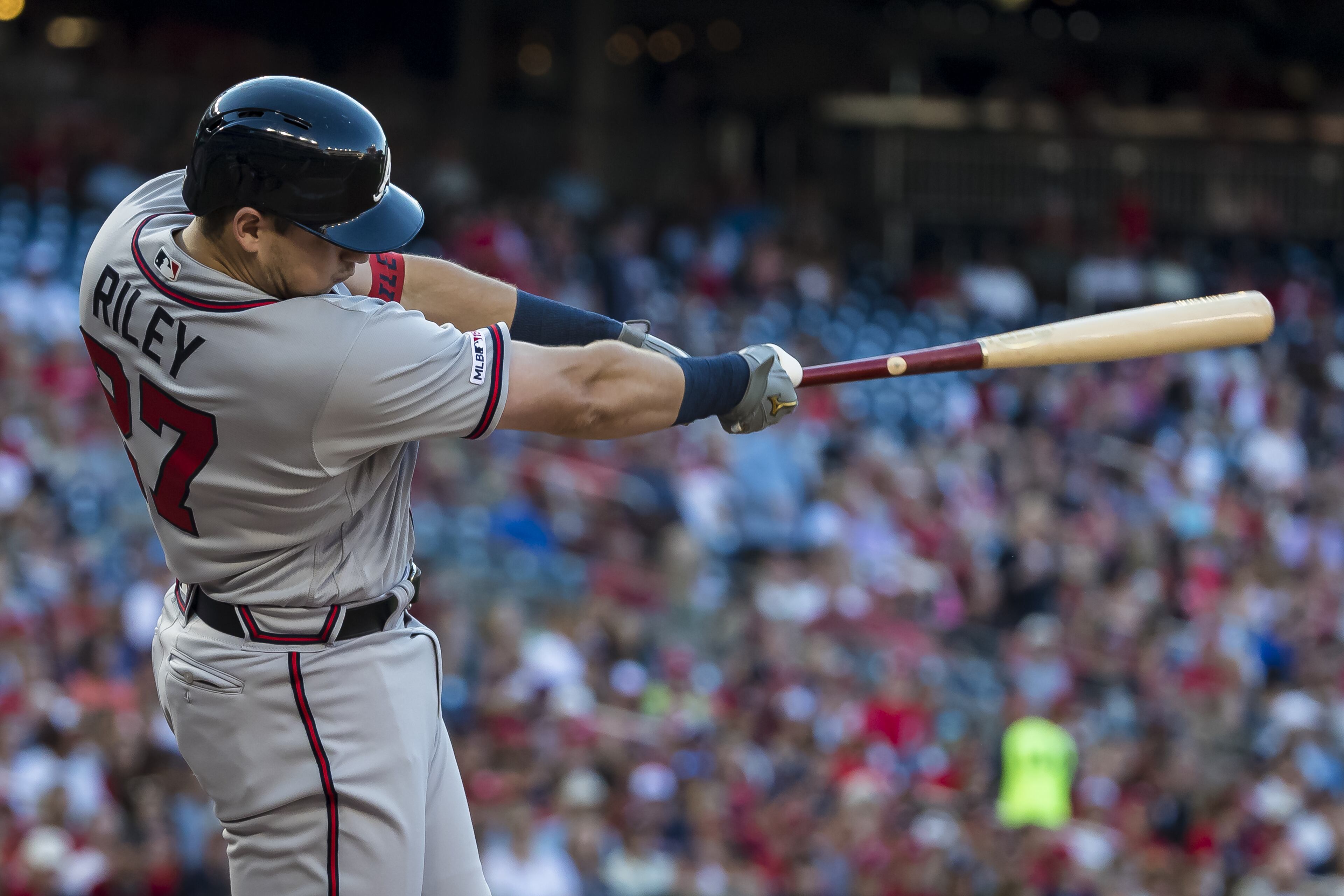The Braves are the best in the East, won’t blow this

The Braves begin the second half of the season with a six-game lead in the National League East. Three major statistical projections give the Braves at least a 72% chance of winning the division. They also give the Braves no worse than 92% odds to make the playoffs, period.
The wild card won’t matter. The Braves won’t blow this. They are the class of the division. Their main threat, the Nationals, can’t slug with them. The Braves have been superior to the Phillies, the spring favorites, for most of the season. The Mets are done. The Marlins were never trying.
The best reason to like the Braves to win the East is they have better hitting than anyone in the NL except the Dodgers of the West ("except the Dodgers" is a phrase that comes up a lot in the NL). But what about the playoffs? Conventional wisdom says great pitching is required to win in October. That's generally been true even during the "juiced" ball era that began after the 2015 All-Star break.
Division standings
There have been exceptions, though, and I think they provide a blueprint for a team like the Braves.
In the 12 NL playoff series beginning in 2015 (excluding wild-card games, which are dumb), three teams won while allowing at least four runs per game. The Cubs won a 2015 NLDS series against the Cardinals despite giving up 4.25 runs per game. The Dodgers won a 2016 NLDS series against the Nats while giving up 4.8 runs per game and getting outscored by five.
Sometimes a team can win in a postseason series with lots of hitting and just enough pitching. The Braves are that kind of team. They’ve proven they can score runs against even the best pitchers.
The Braves have faced 15 pitchers ranked among the top 25 in Wins Above Replacement by either Baseball Reference or FanGraphs (each uses a different WAR formula). The Braves haven’t seen Max Scherzer (Nationals) and won’t see Cole Hamels (Cubs). They have gone against the staff ace for pretty much every other opponent, and in some cases faced their top two.
Those 15 pitchers had a collective 4.01 ERA against the Braves. They allowed 1.23 walks and hits per inning and 1.57 home runs per nine innings. The Braves have squeezed out runs against pitchers who don’t surrender many.
That was in 17 games, which is a relatively small sample size. Some days even the best pitchers just don’t have it. There were many variables in the games the Braves faced those pitchers, including luck, ballparks, weather conditions and defense.
But playoff baseball is about performing in limited opportunities and overcoming any negative factors that come up. The evidence suggests the Braves can score enough runs against good pitchers to compensate for so-so pitching. Even with no major additions they’ll have a real chance in the playoffs against anyone except the Dodgers (there’s that phrase again).
The Braves have been stymied by some aces, which happens.
They got eight hits against in six innings against Luis Castillo in April, but couldn’t score a run. Hyun-jin Ryu shut them out over nine innings at Dodger Stadium in May. Three days later in Arizona, Zack Greinke held them to a run over seven innings. The Braves tipped their hat to Mets ace Jacob deGrom at SunTrust Park last month after he limited them to two runs over 8-1/3 innings with 10 strikeouts.
The Braves also have beat up on some good pitchers.
Cleveland’s Shane Bieber, the All-Star game MVP, couldn’t get out of the third inning against the Braves. Kyle Hendricks lasted 4-1/3 innings against them at Wrigley Field. The first time the Braves saw deGrom they got him for three runs in five innings on him, and the third time they scored three in six — his 3.72 ERA in three starts against the Braves is second highest among the 12 NL teams he’s faced.
Also consider that the Braves’ lineup functions at a much higher level than it it did in April. They called up rookie Austin Riley (16 home runs in 49 games) to replace Ender Inciarte, who wasn’t hitting. Ozzie Albies slumped in May but has raked since. The lineup has lengthened with Riley, Albies and both catchers producing.

The top of the order is better, too. Acuna has been pretty good all season, but rounded into All-Star form in June. Dansby Swanson has been even better hitting second than sixth. I figured Josh Donaldson eventually would produce more because he was getting on base even when he wasn't providing much pop, and now he's staring to do both.
Add long-time lynchpin Freddie Freeman and steady old pro Nick Markakis and the Braves have a formidable lineup. Starting pitchers get no breather one through eight. The Braves also wear out relievers. They lead the NL in batting average, on-base percentage, and slugging vs. relief pitchers.
The Braves have only two exceptional starting pitchers, Dallas Keuchel and Mike Soroka. But don’t dismiss Max Fried because of his recent wobbles. He has strong secondary pitches, induces a lot of ground balls and has the highest strikeout rate among Braves starters while not walking many batters.
The Braves need another good starter. Another reliable bullpen arm would be nice for depth. They’ll win the East even if they don’t acquire or develop those things. And the Braves also would have a good shot to win a playoff series because of their bats.

